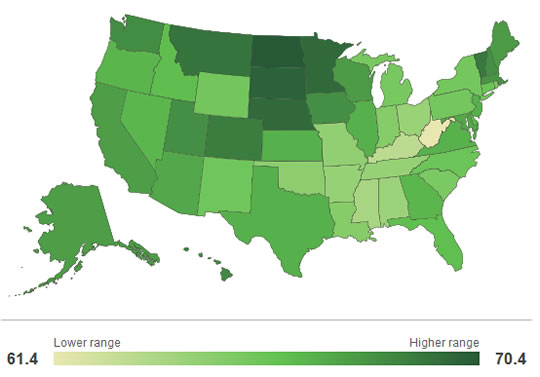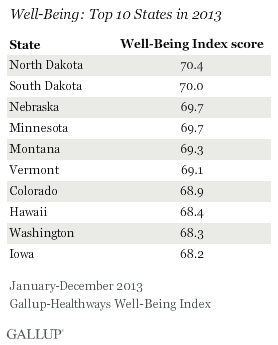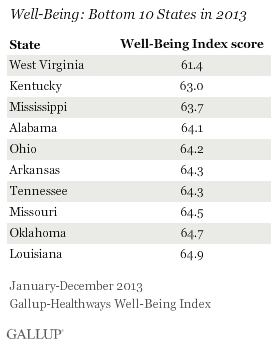Take control, fight little hassles, get fair pay, receive feedback and more…
Lists of how to be happy at work often implicitly blame workers themselves.
If you’re not happy, they imply, it’s because you’re not prioritising properly or you need to smile more, or some other trite rubbish.
Don’t accept this: organisations are mostly to blame for unhappy employees.
Psychological research has shown what makes people unhappy at work, and it’s not lack of smiling.
Here are ten factors truly associated with being happy at work.
1. Get control
Psychologists have consistently found that people who work in jobs where they have little control find their work very stressful and consequently unsatisfying.
The more control people perceive in how they carry out their job, the more satisfaction they experience.
Look for ways of taking control of your job.
Even exerting relatively small amounts of control can make you feel happier with your work.
2. Fight little hassles
Coffee machine doesn’t work? That same information needs to be put into two forms?
People’s job satisfaction is surprisingly sensitive to daily hassles.
Those little hassles all add up.
People don’t mind working hard when the task is difficult, but when it seems like a pointless inconvenience, they get unhappy. Quickly.
Talk to your manager about getting rid of these little hassles.
Also, build a consensus with your colleagues that the little hassles are worth addressing.
3. Fair pay
The bigger the difference between what you think you should earn and what you do earn, the less happy you’ll be.
The question is, who do you compare yourself to: the other people in the office or other people with your job?
Both comparisons will likely affect how happy you are with your job.
It’s perceptions that are very important here, along with the absolute levels of pay.
You may be able to live with small differences, but big disparities tend to eat away at you.
If this is the case, it could be time to move on.
4. Address family problems
Having a child may be wonderful, but it’s also very stressful.
According to a study of almost 10,000 people in the UK, those who had children became significantly less satisfied with their jobs afterwards (Georgellis et al., 2012).
Professor Georgellis explained:
“People are less happy at work for up to five years after their first baby is born, though the effect seems to be stronger for women, especially those in the public sector.”
It’s a reminder that outside events affect how happy people are with their jobs, not just aspects of their jobs.
Are you sure it’s really your job that is getting you down? Perhaps there is a situation at home that needs dealing with.
5. Feeling of achievement
To feel happy in their jobs, people have to feel they are making some progress.
In some jobs achievement is obvious, but in others it’s not.
As smaller cogs in larger machines, it may be difficult to tell what we’re contributing.
That’s why the next factor can be so important…
6. Feedback
When it comes to job satisfaction, no news is bad news.
Getting negative feedback can be painful, but at least it tells you where improvements can be made.
On the other hand, positive feedback can make all the difference to how satisfied people feel.
If you’re not getting feedback, then ask for it.
The right feedback can help satisfy the need for achievement.
7. Seek complexity and variety
People generally find jobs more satisfying if they are more complex and offer more variety.
People seem to like complex (but not impossible) jobs, perhaps because it pushes them more.
Too easy and people get bored.
This won’t be possible for all employees, but look for ways to add complexity and variety to your job.
You might think more complex work is best avoided, but the challenge will likely make you happier.
8. Ask for support
Workers often complain that the big bosses communicate little about the overall direction of the company.
People want to know their organisation cares about them, that they are getting something back for what they are putting in.
We get this message from how the boss treats us, the kinds of fringe benefits we get and other subtle messages.
If people perceive more organisational support, they are happier with their job.
If this area is lacking, try asking your manager for more information and support, and point out why it is needed.
9. Honeymoons and hangovers
People experience honeymoon periods after a month or two in a new job when their satisfaction shoots up.
But then it normally begins to tail off after six months or so.
The honeymoon period at the start of a new job tends to be stronger when people are particularly dissatisfied with their previous job (Boswell et al., 2009).
But what about when the honeymoon period is long gone and you’ve entered a long hangover?
Sometimes the only way to be happier at work is to find new work.
10. Happy in life, happy at work
People who are generally happy find it easier to find happiness at work.
That’s according to an analysis of 223 studies on the connection between job satisfaction and life satisfaction (Bowling et al., 2010).
Lead author, Nathan Bowling said:
“…if people are, or are predisposed to be, happy and satisfied in life generally, then they will be likely to be happy and satisfied in their work.
However, the flipside of this finding could be that those people who are dissatisfied generally and who seek happiness through their work, may not find job satisfaction.
Nor might they increase their levels of overall happiness by pursuing it.”
This is worth remembering for those people who never seem to be happy with whatever job they are doing.
Sometimes the kind of happiness you are looking for cannot be achieved through work.
Image credit: SalFalko












